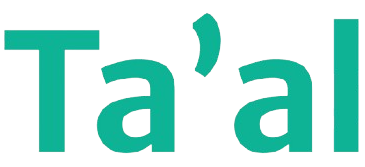Hiring a freelancer can be a game-changer for your business or project. Whether you need a web developer, content writer, graphic designer, or marketing expert, finding the right professional freelance services for organizations can save you time, money, and headaches. But how do you ensure you’re hiring the right person? In this guide, we’ll break down the key factors you should consider: skills, experience, and pricing.
1. Skills: The Foundation of a Great Freelancer
Before you hire a freelancer, you need to define what skills are essential for your project. This might seem obvious, but it’s easy to overlook specifics when scanning through dozens of profiles. Here’s what you should focus on:
a) Core Competencies
Think about the exact skills your freelancer needs. If you’re hiring a writer, do they have SEO knowledge? If you need a graphic designer, can they work with tools like Adobe Photoshop or Illustrator? The clearer you are about the required skills, the better your chances of finding the right match.
b) Technical vs. Soft Skills
Technical skills are crucial, but soft skills hold equal significance. A freelancer might be an excellent coder, but if they struggle with communication or meeting deadlines, they could cause more problems than solutions.
- Technical skills: Proficiency in specific software, coding languages, or industry-related tools.
- Soft skills: Communication, reliability, problem-solving, and time management.
c) Portfolio & Work Samples
A strong portfolio speaks volumes about a freelancer’s abilities. Ask for work samples, case studies, or links to previous projects. If they don’t have a portfolio, ask them to complete a small paid task to assess their capabilities.
d) Certifications & Training
Some freelancers invest in professional training and certifications to sharpen their skills. While not always necessary, these credentials can be a bonus, giving you confidence in their expertise.
2. Experience: The More, The Better (But Not Always)

Experience matters, but it’s not the only factor when hiring through a part time job agency. Consider their portfolio, client reviews, problem-solving skills, and adaptability to ensure they’re the right fit for your needs.
a) Industry-Specific Experience
If you need someone to write for a healthcare website, hiring a writer with experience in finance might not be the best choice. Look for freelancers who have worked on similar projects before.
b) Years of Experience vs. Quality of Work
A freelancer with 10 years of experience isn’t necessarily better than one with 3 years. Instead of focusing solely on years, look at the quality of their work. Have they successfully completed projects similar to yours? Do their reviews and testimonials reflect strong performance?
c) Client Reviews & Testimonials
Freelance platforms allow clients to leave feedback. Read these reviews carefully. Look for patterns—if multiple clients mention excellent communication or reliability, it’s a good sign. On the other hand, frequent complaints about missed deadlines or poor quality are red flags.
d) Past Client References
If possible, ask the freelancer for references from past clients. Speaking with someone who has worked with them before can provide valuable insights into their work ethic and reliability.
e) Adaptability & Learning Curve
A freelancer’s ability to adapt to new trends and technologies is crucial. The industry is constantly evolving, and you need someone who stays updated and can handle new challenges efficiently.
3. Pricing: Finding the Right Balance
Pricing can be tricky. You don’t want to overpay, but going for the cheapest option can backfire. Here’s how to find a freelancer within your budget without compromising quality.
a) Understanding Market Rates
Freelance rates vary by industry, experience, location, and project complexity. Research market trends to understand standard pricing. New freelancers charge lower rates, while experienced professionals demand premium fees. Geographic location also influences costs, with higher rates in developed countries. Understanding these factors helps in budgeting and negotiating fair compensation.
b) Hourly vs. Fixed Pricing
Some freelancers charge by the hour, while others prefer fixed pricing per project. Which one is better?
- Hourly rates: Ideal for long-term projects or tasks where the scope might change.
- Fixed pricing: Best for well-defined projects with clear deliverables.
c) Cheap vs. Quality Work
It’s tempting to go for the lowest bid, but remember—you get what you pay for. A small budget might save you money upfront, but if it looks unprofessional, you may have to spend more later on a redesign. Balance affordability with quality to get the best results.
d) Negotiation & Payment Terms
Don’t be afraid to negotiate. Many freelancers are open to discussion, especially for long-term projects. Also, clarify payment terms upfront. Do they require a deposit? What’s their refund policy? Having these details sorted beforehand prevents misunderstandings later.
e) Additional Costs to Consider
Besides the freelancer’s rate, consider potential extra costs such as software subscriptions, revisions, or urgent delivery fees. Make sure to discuss these upfront to avoid surprises.
4. Communication & Professionalism

Aside from skills, experience, and pricing, professional freelance services for organizations play a key role in a freelancer’s success. Here’s what to look for:
a) Response Time & Availability
A freelancer who takes days to reply may not be the best choice for urgent projects. Set expectations on response time and availability from the beginning.
b) Clarity & Transparency
Clear communication prevents misunderstandings. The freelancer should be able to explain their process, deadlines, and pricing without ambiguity.
c) Handling Revisions & Feedback
Great freelancers accept feedback positively and are willing to make reasonable revisions. Discuss revision policies before starting the project.
d) Professionalism & Work Ethic
Reliability and consistency are key indicators of professionalism. Freelancers who respect deadlines, provide regular updates, and deliver high-quality work are worth investing in.
Final Tips for Hiring the Right Freelancer
Now that you know what to look for, here are some final tips to make your hiring process smoother:
- Write a Clear Job Description: Clearly define project requirements, budget, and deadlines to attract the right freelancers, ensuring they understand expectations before committing to the work. Clarity reduces misunderstandings and improves efficiency.
- Start with a Trial Project: Testing freelancers with a small task helps evaluate their skills, reliability, and work ethic before committing to larger projects, reducing risks and ensuring a good working relationship.
- Communicate Clearly: Open and direct communication ensures mutual understanding of deadlines, revisions, and feedback, preventing delays and confusion while fostering a smooth and productive collaboration between clients and freelancers.
- Use a Contract: A formal agreement outlining project scope, payment terms, and deadlines safeguards both parties, ensuring accountability, preventing disputes, and providing legal protection in case of conflicts or unmet expectations.
- Trust Your Instincts: If a freelancer’s communication, work style, or behaviour raises concerns, it’s best to move on and find a better fit to avoid potential complications down the line.
Conclusion
Hiring a freelancer doesn’t have to be overwhelming. With professional freelance services for organizations, you can find experts who match your specific needs. By focusing on skills, experience, pricing, and professionalism, you can hire the perfect professional to help you achieve your goals. Take your time, do your research, and make a choice that aligns with your needs and budget. Find the perfect freelancer with Ta’al, your go-to platform for hassle-free, flexible, and verified professional freelance services!




